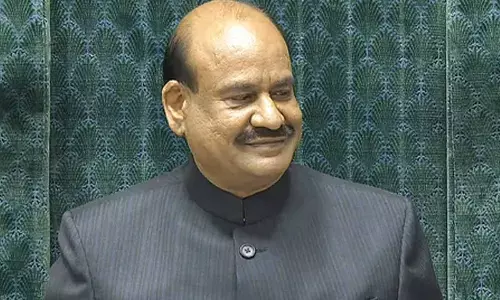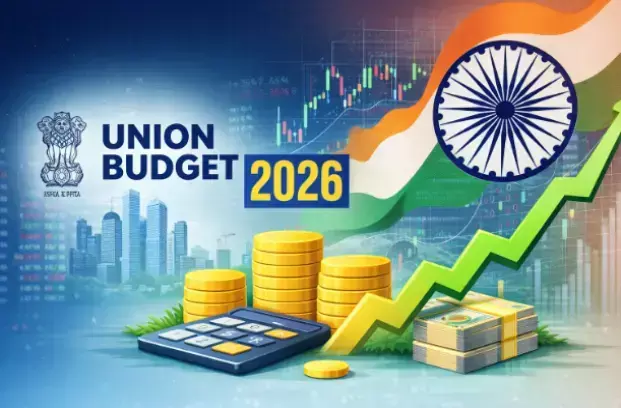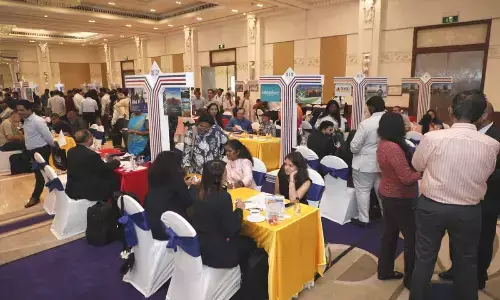MyVoice: Views of our readers 5th March 2023

MyVoice: Views of our readers 5th March 2023
The discovery and seizure of Rs7 crore allegedly received as bribe by a BJP MLA’s son in Karnataka ahead of the Assembly election has lent credence to the accusation that the BJP government in the state is “40% sarkar.
'Bribegate' undermines graft-free pledge of BJP
The discovery and seizure of Rs7 crore allegedly received as bribe by a BJP MLA's son in Karnataka ahead of the Assembly election has lent credence to the accusation that the BJP government in the state is "40% sarkar." "Commission" is the word between '40%' and 'sarkar.' The bureaucrat-son was caught red-handed accepting bribe in his politician-father's office in a 'trap' laid by the Lokayukta sleuths.
The BJP could not but be embarrassed in terms of optics. Bundles of currency displayed showed how politics has been reduced to an unethical business to make easy money! This 'bribegate' in Karnataka that came to light could be the tip of the iceberg. In any case, apart from livening up politics in the State it points to rampant corruption in the BJP-ruled state and belies BJP's claim as 'a party with a difference' and as 'a party with zero tolerance for corruption'. The payoffs from contractors for deals will surely be used by the Opposition to attack the B JP as a corrupt party during the election campaign.
It was a supreme irony that Union Home Minister Amit Shah was exhorting the voters to vote for a 'clean government' when the state was rocked by the corruption scandal.
Now BJP's top leaders would find it very hard to campaign on the anti-corruption plank. Corruption could prove to be BJP's nemesis in the southern state. In response to the present open and shut case of corruption, Chief Minister BasavarajBommai has promised to investigate corruption cases 'hushed up' during the Congress regime!
– G David Milton, Maruthancode, TN
SC verdict paves way for bold, impartial EC
Former Chief Election Commissioner, the indomitable TN Seshan, once remarked, "The powers have always been there provided by the Constitution. I only started exercising them." In the days when technology was not there, he could create the impact of his office even in remote constituencies. He sent shivers down the spine of candidates who were scared to use vehicles or money beyond the prescribed limit, lest they may be disqualified. The later CECs didn't stand up to the mark and nobody ever even remotely matched the standards of Seshan. It shows that an individual with commitment and courage and character is needed to deliver even if the institution is powerful.
Lame and pliant individuals can't do anything even if their office provides themall powers. We see many individuals shying away from using their due powers while there is another extreme who use the powers wrongly like governors of some states.
In this context, the landmark verdict of the SC to constitute a committee comprising of PM, Leader of the opposition and the CJI for selection of Chief election Commissioner is praiseworthy. The need of the hour is to have strong and bold EC to conduct free and fair elections to the biggest democracy of the world. It is a tough job. But people like Seshan did it with aplomb. Others too can do, if only they have a heart stout and sincere. Possibly, the said committee will be able to select the RIGHT candidates.
– Vinay Bhushan Bhagwaty, Hyderabad
The opposition raising questions on the appointment of the Chief Election Commissioner and Election Commissioners by the ruling government cannot be faulted. The five-judge constitution bench of the Supreme Court unanimously disapproved of the present system and its landmark verdict is a step in the right direction. Further, the stipulation that the member committee comprise Prime Minister, the Leader of Opposition in LokSabha and the Chief Justice of India will make the selection of CEC and ECs a fair process.This not only ends the government monopoly in appointment of ECs but also facilitates that best person suited to the job and having no obligation to the party in power will be picked up to prevent abuse of the electoral process.
–K R Srinivasan, Secunderabad
One hopes that this move will bring to fruition the Supreme Court's opinion that "a person who is weak-kneed before the powers-that-be cannot be appointed as the Election Commissioner.""A person who feels indebted to one who appointed him, fails the nation," added Justice KMJoseph. That the Supreme Court chose to uphold the sanctity of electoral process in a democracy is good news. Because, independence of the person overseeing an electoral process so humongous in a country like India is extremely crucial.
– Dr George Jacob, Kochi
The Supreme Court has has addressed some serious concerns that have been raised about the conduct of the Election Commission in the recent past. The appointment of EC members will be done on the advice of a committee comprising the Prime Minister, the Leader of Opposition in the Lok Sabha, and the Chief Justice of India (CJI), thus restricting the power of the government of the day to make the appointments. Its main beneficiary will be EC. Governments so far have been unwilling to let go of their monopoly in selecting commissioners despite there being a clear conflict of interest. One outcome of it is that the institution's credibility is being damaged by allegations of partisanship in a charged political atmosphere. Therefore, a selection committee with representation from the opposition and judiciary, will insulate EC from political attacks. This is essential to ensure continued faith in the electoral process.
– N Sadhasiva Reddy, Bengaluru
No need to wait till 2047 to be developed nation
"Technology use to make India developed nation by 2047" is an unquestionable parameter, but it alone cannot be construed as peroration as if it is the end goal. Primarily, it can undoubtedly be an acceptable and vulnerable nomenclature to eradicate many social problems bracing broadly around us like poverty, unemployment, delayed justice, unabated corruption, polluted environment ill-health and so many ills that devour the democratic discipline besides many man made inhuman activities. Minimising all such unfriendly and unsavoury conditions are tobe curbed drastically if not totally eradicated, to pave the way to realise the nation to a developed one. BJP's eight year term is more than enough to achieve these targets in its journey towards a developed nation, if they are set for and no need to wait till 2047.
–N Ramalakshmi, Secunderabad
Stress-free education is the need of hour
The recent suicides by the students of private college/school students indicate the intensity of the torchers, humiliations and metal agony by the institutions towards innocent students. It should be highly condemned and stringent action should be against such managements. Also, we are collectively making mistakes by choosing wrong institutions.It is not only one case of the Satvik; many are facing similar stress and strain before the annual examinations.
The sharp rise in the number of suicides is on account of high expectations from parents, faculty and peer pressure. A comparative and competitive spirit is imposed on their wards, unaware of the dire consequences. They have only two options in their minds, long-term coaching right from 6th class, either for medicine or engineering in the elite IITs. Parents are carried over by surreal advertisements and admit their wards in corporate schools.
We need to understand that unless the child performs exceptionally well, let's say in Maths then parents can take a decision in coaching for IIT or other exams, else never push our kids to undertake such courses.
We lose many innocent bright and brilliant students as we never understand their psyche. We give the least priority to their basic needs but constantly push them beyond their mental and emotional capabilities resulting in an acute state of depression.
Parents have to check if the institutions are giving stress free education, then only, we should take admission in such colleges/schools. It is to be noted that such suicide attempts are never seen in government colleges/schools.
The parents and the management should realize that passing the examinations is not the ultimate goal in their life. We know pretty well
that most companies are looking at the skills of the students, not their academic progress report.
–Kanagiri SN Prasad, Hyderabad
II
Resorting to extreme step on silly reasons by students has been increasing these days. Admonishing by teachers for not getting good marks, indiscipline activities are quite common in any educational institution. In corporate schools, the percentage of strictness is higher due to management pressure on teachers which reflects on students. Treating this as torture and insult, students on the spur of moment are tying their necks under umbrage. DrPreeti, students in a high ranking schools, young teenagers on the pretext of parents' refusal for buying smart phones, etc., are trivial and not so serious reasons for ending their precious lives. Parents are also partly responsible to shape their children very sensitive and intolerable for any small mishap.
Corporate culture should also be brought under the scanner of government to check its excessive imposition of unreasonable and issues of prattle in nature.
– Dr NSR Murthy, Secunderabad
III
The suicide spree has been going on unabatedly. Shockingly the trend is not only confined to junior colleges but it is happening even in professional colleges such as medical and engineering colleges also.
It is reported that ragging is the key reason for suicides in professional colleges. But work pressure is behind suicides in junior colleges. True to it within a gap of 20 days two suicides cases were reported in junior colleges located in Hyderabad.
In fact, corporate junior colleges which are known as concentrated centres are putting heavy pressure on students for marks and ranks. Even the Niradha Reddy committee which was appointed in 2001 to go into the functioning of corporate colleges concluded in its report that these colleges were conducting classes continuously for 16 hours a day.
There was no provision for sports and entertainment. If they failed to achieve required level they were forced to sit in lower academic standards section. It is very bad on the part of parents as they are also seeking best ranks and marks for their wards without considering their potential.
– Pratapa Reddy Y, Tiruvuru, AP
Is Punjab heading the Kashmir way?
One wonders if Punjab is fast turning into becoming a Kashmir as the latter once was before the abrogation of Article 370 and 35A in the state - owing to deteriorating law and order situation, in the aftermath of AAP coming to power there.
The state is notorious for drugs reaching across the border from Pakistan through drones and other several means has led to the addiction of thousands of youths who are now total addicts as de addiction treatment is being meted out to them. These individuals are ready to do the bidding of anyone who provides the stuff – to be ready as cannon fodders for anti-national purposes. The AAP government headed by Chief Minister Bhagwant Mann proved absolutely ineffective in preventing the drug menace in the state.
Now, his pro-Khalistan face has emerged and become apparent with the recent developments the state has witnessed the new avatar of Amritpal Singh, who has unabashedly donned the role of late Khalistan revivalist Jarnail Singh Bhindranwale. Amritpal Singh makes no bones about his true intentions of carving out a separate state of Punjab; and has challenged the concept of federal structure of states in the country.
The question is whether the AamAadmi Party (AAP) is hand-in-glove with secessionist and separatist elements of Punjab in turning Punjab into what Kashmir once was – to be under the control of pseudo-seculars and pro-Pak elements cannot be ignored or undermined.
– K R Venkata Narasimhan, Madurai
Safety culture has to take firm roots
Safety is one of the most significant issues that is frequently disregarded.Every year on March 4, National Safety Day is observed throughout India with the aim of raising awareness of safety procedures, particularly those relating to the environment, workplace safety, traffic safety, and human health.The promotion of a safety culture is one of the main goals of National Safety Day. A group of embedded attitudes, values, and convictions that place safety first are referred to as a safety culture. When a culture of safety is formed, taking precautions and prioritizing safety become commonplace for everyone. This in turn might contribute to fewer accidents happening.
Indians celebrate National Safety Day as a major occasion to raise public awareness of safety issues and to inspire people to live safe lifestyles.A proactive approach to safety as well as methods for spotting potential hazards and dangers at work are other objectives of National Safety Day. Let's commemorate National Safety Day with everyone nearby by urging them not to ever compromise or disregard safety.
– Dr Krishna Kumar Vepakomma
Dignity of menstruation
Three A's - Awareness, Accessibility, and Affordability - are the major factors influencing the issue. According to a UNICEF study conducted in 2011, only 13% of girls in India are aware of menstruation before menstruation. 60% of the girls missed school due to menstruation. 79% face low self-confidence due to menstruation and 44% are embarrassed and humiliated by the restrictions. Due to which menstruation adversely affects women's education, equality, maternal and child health.
According to UNICEF, menstrual hygiene can pose physical health risks and is associated with reproductive and urinary tract infections. This prevents women from reaching their full potential and they miss out on important opportunities like education for their development. Girls who do not receive education are more likely to enter child marriages and experience early pregnancy, malnutrition, domestic violence, and pregnancy complications.
The stigma of menstruation is due to shame as well as the high cost of feminine products.
The latest National Family and Health Survey found that more than 77% of menstruating girls and women in India use old clothes, often reused during periods, along with ash, newspapers, dried leaves, and husks. There is support for them.
The first step to 'dignity of menstruation' is to normalize menstruation and destroy its inverse perception by considering it a natural process. India needs to provide free sanitary products to promote "whoever needs them" as in Scotland.
- Priyanka Saurabh, Hisar
Menstrual leave needs widespread debate
It refers to the Supreme Court's recent direction to the Ministry of Woman and Child Development on menstrual leaves. It is indeed a sensitive and debatable issue. But we need to remember that we cannot brush this issue under the carpet and ignore it, because the women employees are critical cogs of the corporate world and 2-3 days leave to them should not be an issue. Sometimes working women face severe abdominal pain that makes it very difficult to work, leave aside working efficiently. And ultimately it is all about getting best productivity from the workforce. This is the amount of gender sensitivity and empathy Indian Inc needs to extend to the women workforce to motivate them to join. And in turn this can also help in bridging the huge gulf between men and women workforce.
– Bal Govind, Noida
II
The Supreme Court concluded that there are different "dimensions" to menstrual pain leave, which though being a biological process, may also act as a "disincentive" for employers from engaging women in their establishments. The court was seeking a direction to States to frame rules for granting menstrual pain leave for students and working women in workplaces. However, a law student opinesthat if you compel employers to grant menstrual pain leave, it may operate as a de facto disincentive for employers to engage women in their establishments.
There are different dimensions to the issue, we will leave it to the policy makers. Let them first formulate a policy.Having regard to the policy dimensions involved in the matter, we are of the considered view that the petitioner makes a representation to the Ministry of Women and Child Development, which may take an appropriate decision on the grievance of the petitioner. Only Bihar and Kerala are the only States that allow menstrual pain leave.
– JayanthySubramaniam, Mumbai
Indore's ignominy of pathetic play
The game of cricket is a game of chess and each and every move counts. We take things lightly when playing at home and leave the rest to the vagaries of the 22 yards wicket.
This move boomeranged and we are back to square one. Preparing pathetic wickets put paid to our hopes in the end.
Losing 7 wickets in the 1st session of the game after opting to bat never helps. With the batting scars still playing on their minds, the Indian spinners struggled to hit consistent lengths in the second half of the opening day. Usman Khawaja, with his low hands approach and intermittent sweeps, set the template for the rest of the batters and played a pivotal role in Australia securing a significant 88-run lead. India tried to get their act together in their second essay, but Australia trusted their discipline and kept posing questions to probing Indian batsmen. It was a total disaster in the end.
– C K Subramaniam, Mumbai














